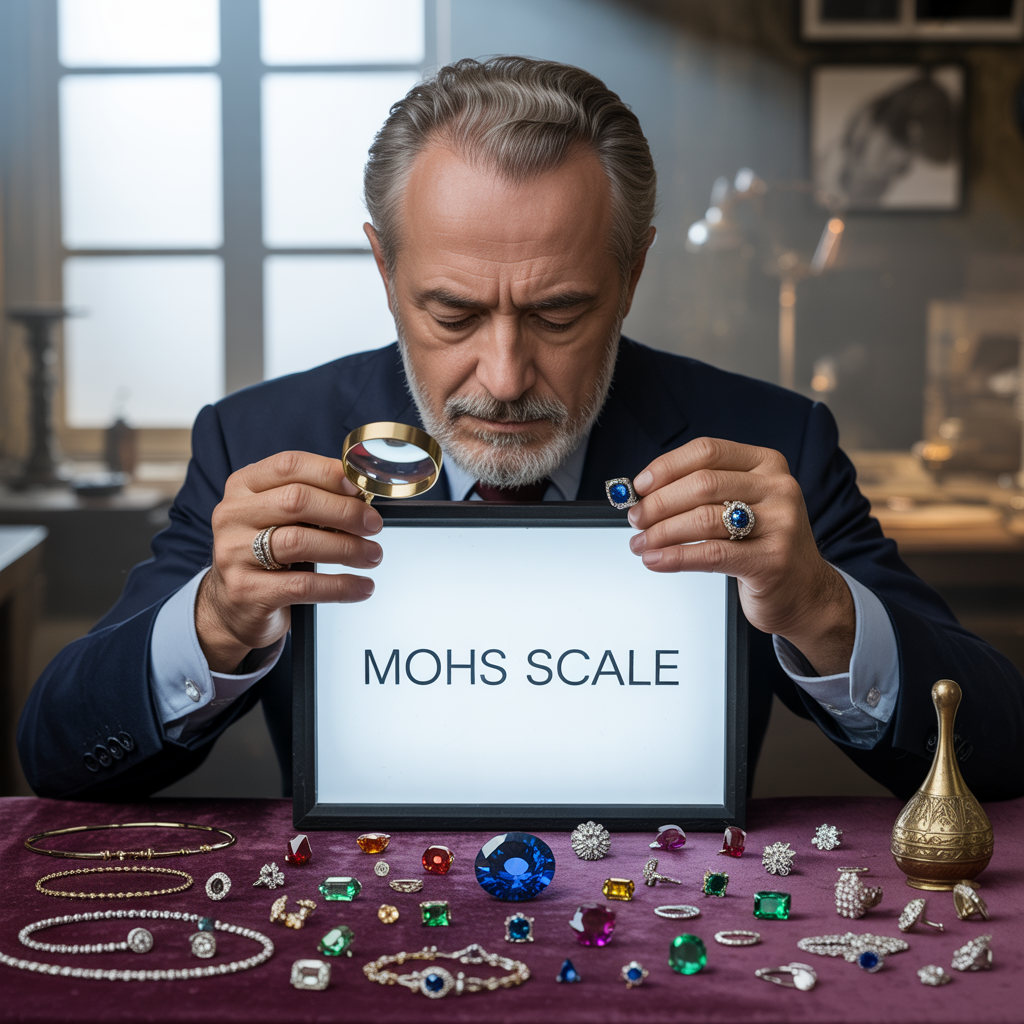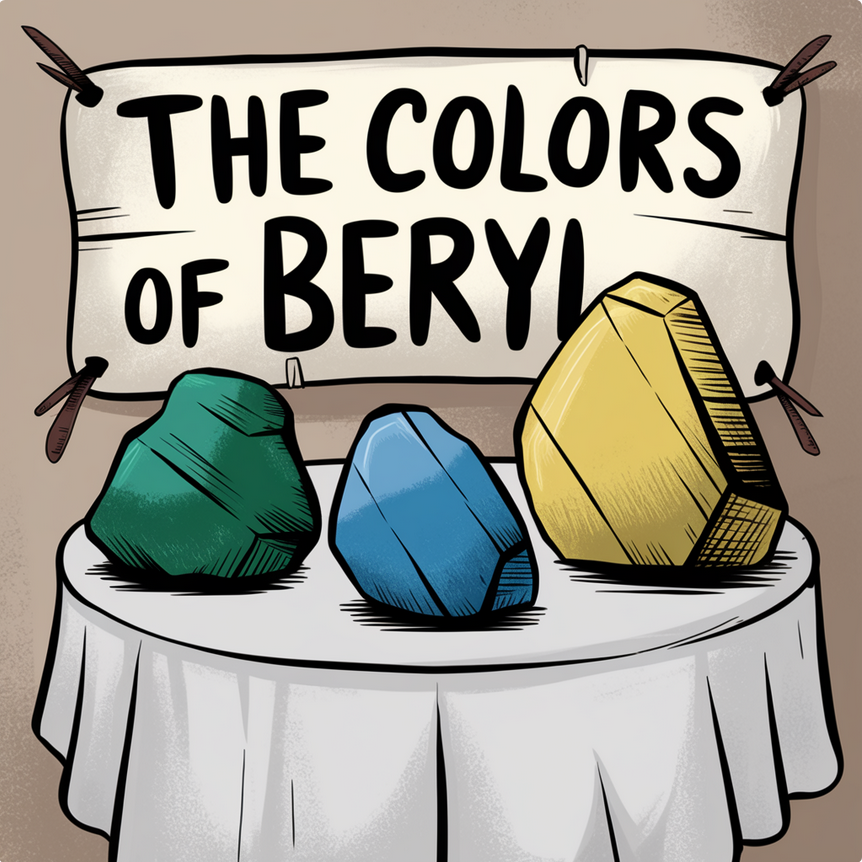Amethyst Gemstones
Ametrine Gemstones
Aquamarine Gems
Alexandrite Gems
Garnet Gems
Amethyst Gemstones
Ametrine Gemstones
Aquamarine Gems
Alexandrite Gems
Garnet Gems
Spinel Gemstones: Comprehensive Guide
by Jeff Moriarty January 26, 2024

Spinel, with its mesmerizing hues and compelling history, has captivated gem enthusiasts and collectors for centuries. This article delves into the essence of spinel, exploring its origins, rarity, value, and unique properties that make it a cherished gemstone in the world of fine jewelry.
What is Spinel?
Spinel is a gemstone that has often played the role of an unsung hero in the world of precious stones. Its historical significance is profound, with many famous "rubies" in crown jewels around the world being discovered as spinels. Geologically, spinel forms in metamorphic rocks and is often associated with corundum (ruby and sapphire), sharing similar formation environments but distinct chemical compositions.
What Colors is Spinel Available in?
Spinel offers a palette of colors, from the fiery reds and pinks to the serene blues and purples. Each color variant has its own allure, with the red and pink spinels being most coveted for their vibrant tones, often compared to rubies. Blue and purple spinels, deriving their colors from iron and cobalt, respectively, are prized for their rarity and beauty. Beyond these, spinel can surprise with unusual colors like orange, teal, and even black, making it a versatile gem for designers.
Is Spinel Rare?
Spinel's rarity is a tale of geology and market dynamics. While not as rare as some of the top-tier gemstones, high-quality spinels, especially in larger sizes and certain colors, are exceedingly rare. The factors affecting its rarity include the scarcity of mining locations and the gemstone's natural occurrence in small sizes and quantities.
Is Spinel Expensive?
The value of spinel varies widely, influenced by its color, clarity, size, and origin. While some spinels are accessible to the wider market, the finest specimens, particularly those in sought-after red and blue hues, can command high prices, rivaling those of rubies and sapphires.
Is Spinel a Fake Diamond?
Spinel is not a "fake diamond" but rather a distinct and valuable gemstone in its own right. It has unique chemical and physical properties that set it apart from diamonds. While both spinel and diamond can exhibit brilliant transparency and luster, they differ significantly in composition, hardness, and formation.
How Should You Clean Spinel?
-
Warm Soapy Water: The most recommended cleaning method for spinel is using warm soapy water. Use a mild detergent or dish soap and mix it with warm water. Avoid using harsh chemicals, as they can damage the gemstone or the setting.
-
Soft Brush: Use a soft-bristled brush, such as a toothbrush, to gently scrub the spinel. This helps remove any buildup of dirt or oils, especially in hard-to-reach areas like the back of the gemstone or around the setting.
-
Rinsing: After gently scrubbing the gemstone, rinse it thoroughly under lukewarm running water to remove any soap residue. Make sure the water flow is gentle to avoid losing the gemstone, especially if cleaning over a sink.
-
Drying: Carefully dry the spinel with a soft, lint-free cloth. You can also let it air dry on a towel, ensuring that it’s completely dry before storage or wear.
-
Inspection and Professional Cleaning: Periodically, it’s wise to have your spinel jewelry inspected by a professional jeweler, especially if it’s set in a precious metal that might require polishing or repair. They can also perform a professional cleaning, ensuring the longevity and beauty of your spinel gemstone.
Does Spinel Fluoresce?
Indeed, some spinel varieties exhibit fluorescence, an enchanting property that adds to the gemstone's mystique. We'll delve into the science behind this phenomenon, examining how certain trace elements within spinel contribute to its ability to fluoresce under specific lighting conditions.
Physical Properties of Spinel
| Property | Details |
|---|---|
| Hardness | 8 on the Mohs scale |
| Colors | Wide range including red, pink, blue, purple, orange, black, and more |
| Chemical Classification | Oxide |
| Luster | Vitreous to dull, depending on the quality |
| Diaphaneity | Transparent to opaque |
| Cleavage | None, spinel typically exhibits conchoidal fracture |
| Specific Gravity | Approximately 3.5 - 4.1, varying slightly depending on the specific composition |
| Chemical Composition | MgAl₂O₄ (Magnesium Aluminum Oxide) |
| Crystal System | Isometric, forming in octahedrons and occasionally in dodecahedrons |
Jeff Moriarty
Jeff Moriarty has been in the jewelry industry for almost 20 years. His family now only owns a retail jewelry store in Crown Point, Indiana, but he also travels the world with his father in search of rare gemstones.
Leave a comment
Comments will be approved before showing up.
Also in Jewelry, Gemstones, News and Cool Stuff

Ruby vs. Garnet: How to Tell the Difference Between These Red Gemstones
by Jeff Moriarty July 17, 2025
Read More
The Truth About Gemstone Hardness and Durability: What High-End Buyers Need to Know
by Jeff Moriarty July 16, 2025
Read MoreSubscribe
Sign up to get the latest on sales, new releases and more …



